Morningstar Read online
Page 3
That weirdness seemed to grow stronger with puberty. Insomnia hit, and at night beneath my gingham bedspread I’d watch Johnny Carson and then Tom Snyder on my tiny portable black-and-white television. After Snyder, TV ended, and I would read until my eyes drooped. But once I turned off the light and got on my side, panic gripped me. My heart raced and I’d sit up, turning the light back on, almost certain I would find something there. What that something might be, I can’t say. We were a family that believed in ghosts, and often at breakfast we reported sightings: mysterious bruises on my father’s arms came from a ghost pinching him; the dip of the bed beside my mother was a ghost sitting next to her; the soft breeze my grandmother felt even though the windows were closed tight meant a ghost had kissed her. Perhaps I was expecting to find my dead great-grandmother or aunt in the room, but the fear felt bigger than even ghosts.
When my mother called out to me and asked what was wrong, I could never name it. “Nothing!” I would say. Everything, I would think. Many nights she got dressed and drove me to the Dunkin’ Donuts down the street, where we’d sit in a booth and drink coffee and eat glazed doughnuts until I’d calmed down. It didn’t occur to me until I was an adult how difficult those forays into the night must have been for her—she had to be at work at the candy factory by seven the next morning. By the time I emerged from my grateful sleep for school, she was long gone.
THE SUMMER OF the beads, I read The Bell Jar. I remember the cover. A pink so pale it almost looked white. The black letters with their curlicued T and B and J. The red rose stretched across the edge. Unaware as I was of things like book reviews, I didn’t know that the book I’d plucked from the library shelf was a new one, just published in the United States. I didn’t even know—though surely this was in the author’s bio—that Sylvia Plath had committed suicide on February 11, 1963, just a few weeks after The Bell Jar had been published by Harper & Row in Britain under the pseudonym Victoria Lucas. After her death, her estranged husband, poet Ted Hughes, promised her mother, Aurelia Plath, that the novel wouldn’t be published in the United States during her lifetime. But the wild success of Sylvia Plath’s poetry collection Ariel and the rumors that Victoria Lucas was indeed Plath, made the demand for The Bell Jar in the United States huge. Bookstores in New York City sold bootleg British copies of the novel, but it wasn’t until an editor at Random House learned that it was no longer eligible for copyright protection, thereby forcing Harper’s hand, that The Bell Jar was finally published here, despite Hughes’s promise.
An immediate bestseller, Plath’s story of beautiful, brilliant Esther Greenwood’s breakdown spoke to my generation. The minds of women were just being discussed openly as feminism soared. Questions of career, sex, marriage, and finding yourself were, I suspect, what kept me up at night. In my small town, only a handful of graduating seniors went on to college. People who were born in West Warwick tended to stay in West Warwick. But I wanted to leave. For what I cannot say, nor could I say then.
I wanted to be a writer—in fact, was a writer in many ways, filling purple notebooks with poems and stories and short plays—and imagined a writer’s life, perhaps in Greenwich Village or Paris. Certainly there were no writers in my town, or as far as I knew, in all of Rhode Island. When my ninth-grade guidance counselor asked me what I wanted to do with my life, I told him I wanted to be a writer. Mr. Stone, in his brown corduroy suit and tinted aviator glasses, shook his head sadly. “Ann,” he said, “people don’t do that.”
My eyes drifted to the shelves against the wall. “Then how do we get all these books?” I asked him.
Mr. Stone glanced at the books for a moment, then told me, “All those writers are dead.”
He was right, of course. This was, after all, 1969 or ’70 and we only read the dead white guys. Would I write in anonymity, I wondered, and have my stories published only after I died?
By then, our library had opened at last. I read every book I could get my hands on. And I had just read a paperback called How to Become an Airline Stewardess by Kathryn Cason. For that special breed of young women with their eyes on the stars—and their hearts set on a jet-paced career with wings! the cover proclaimed. Inside were promises of breakfast in New York, lunch in Bermuda, dinner in Rome, and boyfriends in every city in the world.
“Then I’d like to be an airline stewardess,” I told Mr. Stone.
He shook his head again. “Ann, smart girls do not become airline stewardesses. You should be a teacher or a secretary or make your life nice and easy and get married.”
I don’t know how I replied to his suggestions, but I know that I dismissed them. I didn’t want to be any of those things—teacher, secretary, wife. But unable to name this yearning I had for something different, all I knew was that I wanted to get out of West Warwick. Writers, I thought, needed adventures. Airline stewardesses had adventures. If my ticket out was on a jet, then I would take it. Those adventures would give me ideas for the novels I would write. The next time I went to the library, I checked out How to Become an Airline Stewardess again, and dutifully recorded the qualifications (height! weight!) and the interview tips (don’t wear a turtleneck!) in one of my purple notebooks. I would see the world, I decided. I would run with the bulls and jump naked in fountains in Paris. And then someday, somehow, I would be a writer.
THE BELL JAR seemed to be written just for me. Esther Greenwood wanted to be a writer too. She had won a fashion magazine contest that sent her and eleven other girls to New York City for a month with all their expenses paid and “piles and piles of free bonuses, like ballet tickets and passes to fashion shows and hair stylings at a famous salon . . .” Esther had the same doubts I had. “How could I write about life when I’d never had a love affair or a baby or even seen anybody die?” Esther wonders. She remembers a girl who won a prize for a short story about pygmies in Africa and asks: How could I compete with that sort of thing?
Despite the perfect boyfriend, Buddy, who wants to marry her, Esther doesn’t want to get married. She’s curious about sex, but doubtful about matrimony. She worries that once someone liked her, he would “sink into ordinariness,” that she would find fault after fault with him like she did with Buddy. Esther Greenwood was the first character I met who expressed the very things I worried over as “I Am a Rock” played again and again on my record player. I worried over ordinariness—mine in particular. I worried over the idea of getting married and staying in my hometown forever. I worried over that thing I wanted that no one could help me name or find. No one except Esther. “The last thing I wanted was infinite security and to be the place an arrow shoots off from,” she says to explain why she doesn’t want to get married. “I wanted change and excitement and to shoot off in all directions myself, like the colored arrows from a Fourth of July rocket.”
Around me, my older cousins got married at our church, Sacred Heart. The brides wore flowing white gowns embellished with tiny pearls and lace, long veils, bouquets of lilies; the grooms wore tuxedos and shiny shoes, boutonnieres and clean-shaven faces. There were bridesmaids, in mauve velvet or pale yellow jersey knit and dyed-to-match shoes, clutching chrysanthemums or daisies; groomsmen in too-tight rented tuxedos, their shirts the color of those dresses. At the reception at the Club 400, whiskey sours flowed from fountains, the Champagne toast was pink and sweet, and we ate ziti, chicken stuffed with rice, green beans amandine, and iceberg lettuce topped with a wedge of tomato.
The couple moved into an apartment, then bought a small house. They had a baby, then another baby. On Sundays they came to our house and visited Mama Rose and ate lasagna and threw barbs at each other. He complained that she never let him have fun. She complained that he didn’t talk to her enough. They stared out at us blankly, their faces as bland as bologna. I remembered Buddy Willard telling Esther that after she had children she wouldn’t want to write poems anymore. Esther compared being married to being brainwashed: “afterward you went about numb as a slave in some private totalitarian state,” she said.
I watched my cousins and knew Esther was, once again, right.
And then, there was madness itself. Didn’t I sometimes feel out of control? And other times paralyzed? Like Esther, I worked hard all my life to get A’s, worried over each test and research paper, studied and studied and studied. But wasn’t that need to get those A’s part of what drove her mad? Esther obsessed about the Rosenbergs; I obsessed about Charlie Manson and Richard Speck. If Esther Greenwood with her scholarship to a good college, her adoring boyfriend, her good grades and writing talent, could go mad, then couldn’t anybody? Couldn’t I?
AS THAT SUMMER came to an end, I hung those beads in my doorway. My parents, ever practical, ever befuddled by my strange desires, refused to remove the door to my room, so I pushed it open and held it that way with a heavy iron doorstop. The beads made a glistening curtain that whispered when I walked through it. They looked exotic, sophisticated, important.
As we always did before school started, my cousin and I took the bus from the bottom of the hill to downtown Providence. Downcity, it was called. The bus cost thirty-five cents and made one stop: at the state mental hospital. Maybe reading The Bell Jar added to my fascination with that place, which looked almost like a college campus with its curving walkways, large leafy trees, and small groupings of brick buildings—except the windows in those buildings had bars on them. I didn’t know then that the hospital where Esther Greenwood went was a private one, surely more lovely than the one I saw outside the bus window. I didn’t know such differences even existed. Onto the bus stepped a handful of patients: a man who mumbled to himself, a blank-eyed woman led by a nurse, a woman with an angry face who periodically shouted obscenities, and—most fascinating to me—a woman with her hair dyed bright red, her lips smeared with hot-pink lipstick, her entire eyelids painted baby blue, her cheeks overly powdered and rouged. She wore multiple shiny necklaces and a Kelly-green dress. I thought she looked like human neon. Someone behind me whispered, “Crazy,” as the woman regally walked down the aisle to an empty seat. I thought of Esther sitting in the Boston Public Garden reading a scandal sheet of stories about murders and robberies and suicides, or sitting all day on a beach in a skirt and high heels fingering a box of razor blades. I thought of myself sobbing over “The Dangling Conversation,” or pacing in the middle of the night, how things felt so enormous to me, so vital. What was the difference between Esther and me? This woman and me?
In Providence, at the department stores Shepard’s and Gladdings, my cousin and I tried on clothes in front of triple mirrors that multiplied our reflections over and over, a strange effect that always fascinated me. We went to Alexander’s for lunch, a restaurant with white tablecloths and Salisbury steak. We felt so grown-up with our shopping bags crowded into the red booth eating our fancy food. In one of those bags was my first-day-of-school outfit: mauve hot pants with a matching vest that came below my knees and a flowered puckered shirt.
Weeks later, in that very outfit, I was walking through Jordan Marsh into the mall when a woman sitting at a table at the entrance stopped me. “Have you ever thought about modeling?” she asked me. I said yes, though I hadn’t thought about it at all. She invited me to sit down with her so she could explain about Marsha Jordan Girls. Marsha Jordan Girls were ambassadors for Jordan Marsh, she said. They modeled the clothes in the Juniors department, worked at VIP events here and in Boston (Boston! The very idea gave me shivers!), and represented the store in dozens of ways throughout the year.
“I want to be a Marsha Jordan Girl,” I said. It felt like my world had just been blown open, like I was handed a new life, not unlike the one of my vague, big dreams. The woman was explaining that Bonne Bell Cosmetics would come and teach us how to put on makeup, and that we would get special uniforms—she slid a glossy photo of a girl in a gray-and-white pinstriped pantsuit toward me—and have our pictures hanging in the Juniors department. I thought of Esther in New York City, getting hairstyles and clothes, going to fancy lunches. Being a Marsha Jordan Girl sounded similar.
Apparently, lots of girls wanted to be Marsha Jordan Girls, but they only needed eight. I filled out the application eagerly, already imagining a picture of me in that pinstriped suit hanging in the Juniors department. I didn’t know that girls had been coming to the store all day to apply, or that I had just had an interview. I only knew that I wanted to be a Marsha Jordan Girl more than anything in the world.
How I longed to know things, to be sophisticated and worldly. My father had traveled the globe when he was in the navy, and his stories inspired me to do the same. He told me about eating stuffed dog in Africa and hundred-year eggs in China; he explained communism and Castro, having lived in both Peking and Guantánamo; he told me to always order name liquor—Heineken, Tanqueray, Johnnie Walker; steak, my father, told me, should always be eaten rare. Yet even all of this advice did not tell me everything I needed to know to leave my working-class upbringing behind.
In The Bell Jar, Esther makes social blunders too. When she first arrives at the Amazon hotel in Manhattan, a bellhop carries her suitcase up to her room, then doesn’t leave. Instead, he shows her the hot and cold water, how to use the radio, what stations are on the dial, before he finally leaves, slamming the door behind him. “You ninny,” her friend Doreen explains later, “he wanted a tip.” At least a quarter, Doreen continues. Esther can’t believe it: “Now I could have carried that suitcase to my room perfectly well by myself, only the bell hop seemed so eager to do it that I let him. I thought that kind of service came along with what you paid for your hotel room.” When my family traveled, we stayed at motels with swimming pools and ice machines and Magic Fingers on the beds: for a dime the bed shimmied beneath you for a full minute. But I intended someday to stay at fancy hotels in big cities, and then I would tip bellhops, and cabdrivers (Esther quickly learns that they get 15 percent of the fare).
When I got home from the mall that afternoon, the phone was already ringing. I was one of sixteen finalists. On Saturday I was to go to the store for a tea. That day was a blur of brownie sundaes, Jordan Marsh executives, and fifteen other smiling girls. Those brownie sundaes were worrisome: a big square brownie, topped with vanilla ice cream, hot fudge, whipped cream, and a cherry, served in a frosty silver goblet. As we ate, the executives and the woman I’d spoken to the other day asked us questions about fashion trends, our favorite subjects in school, and our dreams for the future.
“I want to be a journalist like Barbara Walters,” I said, trying not to smear hot fudge on my face or dribble ice cream down my shirt. How could I not think of the scene in which Esther has lunch with her benefactress, Mrs. Guinea, and saw her first fingerbowl? “The water had some cherry blossoms floating in it, and I thought it must be some clear sort of Japanese after-dinner soup and ate every bit of it, including the crisp little blossoms.” Mrs. Guinea never says anything to Esther, and she muses how it was only later “when I told a debutante I knew at college about the dinner, that I learned what I had done.” What were the rules for eating a brownie sundae? Should I leave the cherry? To be safe, I did.
In fact, I did not want to be a journalist like Barbara Walters; I wanted to write stories. I have no idea why I said that, except perhaps that teachers and guidance counselors and relatives always laughed when I said I wanted to be a writer, to make up stories and publish books. A journalist like Barbara Walters seemed more practical somehow. And the man looked impressed.
By dinnertime the phone rang again. I was a Marsha Jordan Girl.
ALL THESE YEARS later, I spend a good amount of my time knitting. I do it to calm myself, to soothe my confused and broken heart, to keep sadness at bay. I do it so that I won’t lose my mind. That long-ago summer, when I felt like I was a giant nerve ending exposed to the harsh world, I didn’t realize that stringing those long strands of beads in my hot backyard was accomplishing the same thing. That, and reading The Bell Jar. The novel was a warning. A possibility. An alternate version of the self I might become. It made me un
derstand that young women did go to New York City and write. It made me glimpse a world of stylish clothes and new hairstyles and independence. It also made me tremble as I glimpsed the other side of a creative soul. How scary our talents and desires can be! How close to the edge we actually live.
Lesson 3: How to Ask Why
• Johnny Got His Gun BY DALTON TRUMBO •
“TODAY IN THE WAR,” WALTER CRONKITE SAID TO ME every evening from our black-and-white Zenith. Behind him, a map of Southeast Asia, Vietnam divided into north and south, Cambodia and Laos snuggled into it. I barely looked at that map, or the images of soldiers that followed Cronkite’s introduction. I played with my favorite doll, Little Miss No Name, an orphan in a burlap patched dress, scraggly blond hair, and one big plastic teardrop on her cheek. Or I cut paper dolls or drew intricate series of stairs on my Etch A Sketch. By junior high, I talked on our heavy black telephone, sitting in front of the television as Cronkite announced the number of dead that day. Artillery fire flashed across the scene. I did my homework, dunked chocolate-covered graham crackers into a glass of milk, wrote haiku in purple ink in my poetry notebook. It had silhouettes of a boy and girl holding hands on a beach. Walter Cronkite said, “Tet Offensive.” He said, “Viet Cong. Saigon. Hanoi.”
I didn’t know why we were fighting in Vietnam. In fact, it was many years later that I learned it all began in 1949, when Mao and communism came to power in China (where my father as a young man in the navy was sent). I knew only the simplest things: Ho Chi Minh was bad, Hanoi was north and Saigon was south, and we had been sending soldiers to fight over there . . . well, to me, forever. The shifting allegiances of the United States, Russia, and France were unknown to me, as was the fact that France had ruled Vietnam—Indochina—and was driven out in 1949. Although I knew that north and Hanoi was communist, I didn’t know that the Geneva Accords had established the Seventeenth Parallel as the boundary between Vietnam’s Communist north and non-Communist south in 1954, or that the Hanoi regime then resumed war by means of infiltration and southern insurgents. Even though I’m sure Walter Cronkite told me about the assassination of South Vietnam’s dictator, Ngo Dinh Diem, in 1963 that led to the bombings and large-scale ground forces under President Johnson, I don’t remember these historical details. I just remember watching it: the bombings, the soldiers fighting, the war.

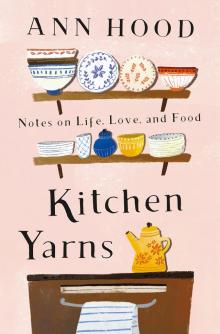 Kitchen Yarns
Kitchen Yarns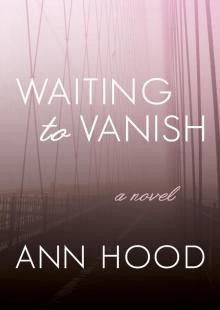 Waiting to Vanish
Waiting to Vanish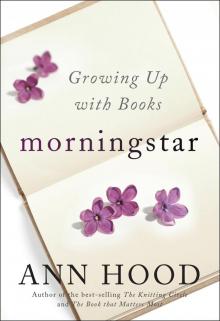 Morningstar
Morningstar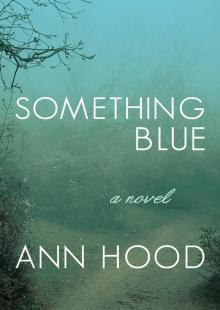 Something Blue
Something Blue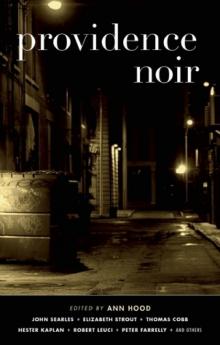 Providence Noir
Providence Noir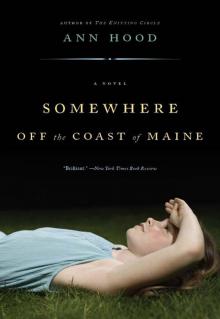 Somewhere Off the Coast of Maine
Somewhere Off the Coast of Maine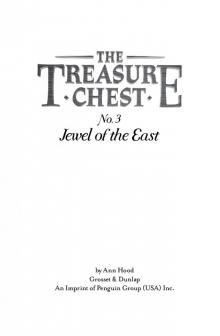 Jewel of the East
Jewel of the East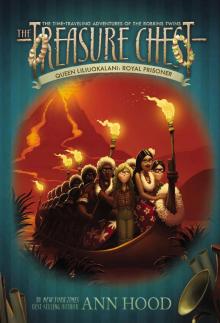 Queen Liliuokalani: Royal Prisoner
Queen Liliuokalani: Royal Prisoner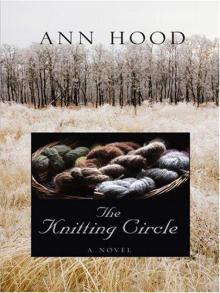 The Knitting Circle
The Knitting Circle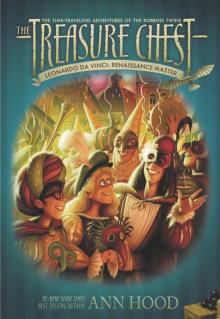 Leonardo da Vinci: Renaissance Master
Leonardo da Vinci: Renaissance Master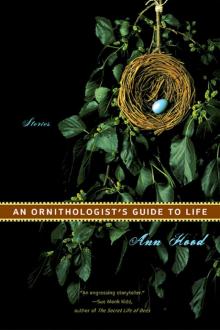 An Ornithologist's Guide to Life
An Ornithologist's Guide to Life The Red Thread
The Red Thread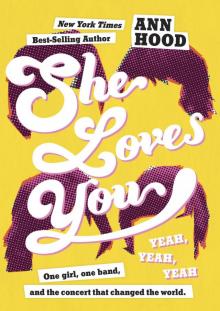 She Loves You (Yeah, Yeah, Yeah)
She Loves You (Yeah, Yeah, Yeah)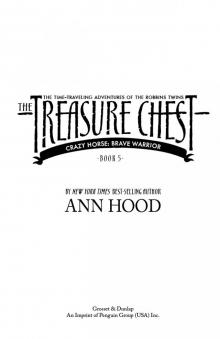 Brave Warrior
Brave Warrior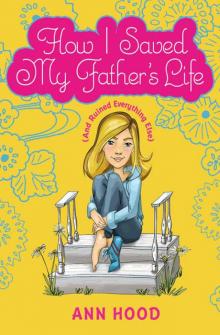 How I Saved My Father's Life (and Ruined Everything Else)
How I Saved My Father's Life (and Ruined Everything Else)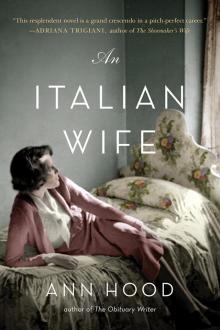 An Italian Wife
An Italian Wife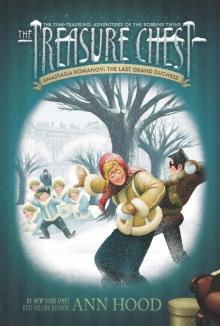 Anastasia Romanov: The Last Grand Duchess #10
Anastasia Romanov: The Last Grand Duchess #10 Prince of Air
Prince of Air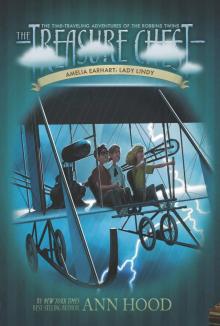 Amelia Earhart: Lady Lindy
Amelia Earhart: Lady Lindy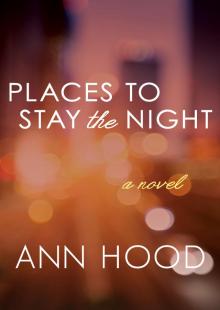 Places to Stay the Night
Places to Stay the Night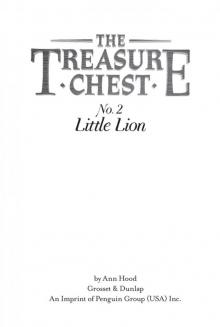 Little Lion
Little Lion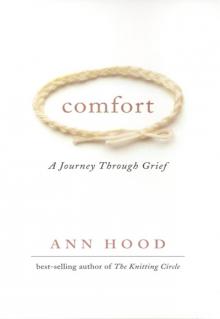 Comfort
Comfort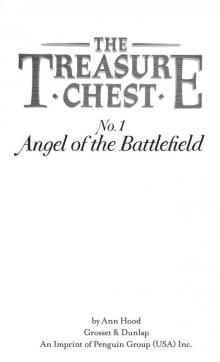 Angel of the Battlefield
Angel of the Battlefield